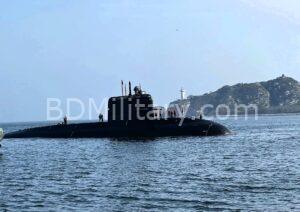Bangladesh’s economy is far larger than official figures suggest. The recorded gross domestic product (GDP) for 2025 stands at around USD 475 billion, according to IMF and World Bank projections. But when the vast informal economy — unregistered small businesses, cash transactions, and untaxed income — is accounted for, Bangladesh’s real economic size could exceed USD 830 billion.
That revelation exposes both a remarkable strength and a profound weakness. On one hand, it demonstrates the vitality and entrepreneurial drive of millions of Bangladeshis. On the other, it highlights how much potential revenue remains outside the state’s reach — revenue that could fund national development, infrastructure, and defence modernisation.
A Nation Built on Informal Enterprise
The informal sector is the beating heart of Bangladesh’s economy. From small manufacturers and agricultural producers to transport operators and retailers, these activities power the everyday economy.
A recent report by The Business Standard revealed that over 72% of all financial transactions in Bangladesh are still conducted in cash. This overwhelming reliance on physical currency reflects how deeply informal habits are entrenched. Official studies by the Bangladesh Bureau of Statistics and international organisations estimate that the informal sector contributes 35%–43% of total economic output.
If that share is accurate, Bangladesh’s unrecorded economy could be worth between USD 350 billion and USD 360 billion — an astonishing amount that remains untaxed and largely invisible to fiscal planners.
The Fiscal Cost of Informality
Despite strong growth, Bangladesh’s tax-to-GDP ratio hovers around 7.5%, one of the lowest in the developing world. By comparison, Vietnam and Indonesia both maintain ratios above 12%, while Malaysia exceeds 15%.
This shortfall severely limits the government’s ability to invest in public goods — from highways and power grids to education, healthcare, and the defence sector. Without stronger revenue mobilisation, the state remains dependent on foreign loans and concessional financing, exposing it to external pressures and exchange-rate vulnerabilities.
In fiscal terms, Bangladesh’s potential is immense. If even a quarter of the informal economy were brought under the tax net, annual revenue could surge by tens of billions of dollars — enough to transform the national budget and fund decades of strategic development.
Why Fiscal Sovereignty Equals National Security
Economic power underwrites military and political sovereignty. A country that cannot finance its own defence or infrastructure is forced to depend on others for critical systems and support.
Formalising the economy is therefore a matter of national security, not just economic efficiency. Greater tax compliance, digital transparency, and financial inclusion would enable the state to invest steadily in:
- Indigenous defence manufacturing and research, reducing import dependence.
- Critical infrastructure, including ports, energy grids, and logistics networks.
- Education and technology, creating the human capital required for a future defence-industrial base.
Every taka brought into the formal system strengthens the foundations of national power.
The Path Forward: From Informal to Formal Strength
To capture this hidden wealth, Bangladesh must move decisively toward economic formalisation. Key steps include:
- Digitalisation of payments and tax systems — encourage mobile transactions, enforce digital invoicing, and link banking data with VAT and income tax systems.
- Simplification of tax procedures — make it easier for small businesses to register and comply, reducing incentives for avoidance.
- Transparent incentives — reward compliance through access to credit, government contracts, and export benefits.
- Public awareness — demonstrate that tax revenue translates into visible national benefits: roads, schools, defence equipment, and energy projects.
The transition will take time, but every reform that reduces cash dependence and increases documentation brings Bangladesh closer to fiscal sovereignty.
Unlocking the True Economy
If the informal economy were properly captured, Bangladesh’s true GDP could surpass USD 800 billion, placing it well within the top 25 global economies. That scale of output would unlock entirely new possibilities for defence spending, industrial policy, and social investment — all while reducing dependence on foreign credit.
The task before policymakers is therefore clear:
Formalise the economy, strengthen the revenue base, and turn Bangladesh’s hidden trillions into tangible national power.

Ayesha Farid is a regional security specialist focusing on South Asia, with over a decade of experience analysing inter-state tensions, cross-border insurgency, and regional power dynamics. She has worked with leading policy think tanks and academic institutions, offering nuanced insights into the complex security challenges shaping the subcontinent. Ayesha’s expertise spans military doctrines, border disputes, and regional cooperation frameworks, making her a vital contributor to BDMilitary’s coverage of South Asian strategic affairs. She leads the Geopolitics & Diplomacy section at BDMilitary. Ayesha holds a dual master’s degree — a Master in International Relations from the IE School of Politics, Economics & Global Affairs, Spain, and a Master of Public Policy from the Munk School of Global Affairs, University of Toronto, Canada — combining deep academic insight with practical policy expertise.



